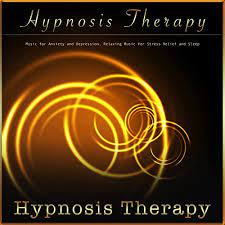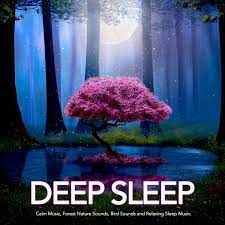Hypnotherapy Music for Sleep: Unlocking the Power of Relaxation
In today’s fast-paced and hectic world, getting a good night’s sleep has become increasingly challenging for many people. The constant stress, anxiety, and various distractions can make it difficult to unwind and achieve the restful sleep our bodies and minds desperately need. This is where hypnotherapy music for sleep comes in as a powerful tool to help us relax and drift off into a deep slumber.
Hypnotherapy music is specifically designed to induce a state of deep relaxation, calm the mind, and create an environment conducive to sleep. By combining soothing melodies, gentle rhythms, and carefully crafted soundscapes, this type of music aims to guide our brainwaves into the alpha or theta states – the states associated with deep relaxation and meditation.
One of the key benefits of hypnotherapy music for sleep is its ability to bypass our conscious mind and directly influence our subconscious. The subconscious mind is responsible for regulating many bodily functions, including sleep patterns. By accessing this part of our mind through hypnotic music, we can effectively reprogram negative thought patterns or beliefs that may be inhibiting restful sleep.
The soothing nature of hypnotherapy music also helps reduce stress and anxiety levels. When we are stressed or anxious, our bodies produce cortisol – a hormone that can interfere with our ability to fall asleep or stay asleep throughout the night. By listening to calming melodies before bedtime, we can lower cortisol levels, relax both body and mind, and create a peaceful transition into sleep.
Moreover, hypnotherapy music for sleep often incorporates elements such as binaural beats or isochronic tones. These are specific frequencies that stimulate brainwave activity associated with relaxation and deep sleep. Binaural beats work by presenting slightly different frequencies to each ear, creating an auditory illusion that synchronizes brainwaves. Isochronic tones use distinct pulses of sound at regular intervals to achieve the same effect. These techniques can help entrain our brainwaves to the desired sleep-inducing frequencies, promoting a more restorative and rejuvenating slumber.
To make the most of hypnotherapy music for sleep, it’s important to create a bedtime routine that incorporates this practice. Set aside some time before bed to unwind and relax, dimming the lights and creating a calm environment. Put on your favorite hypnotherapy music, allowing yourself to fully immerse in its soothing melodies. Focus on your breath, letting go of any tension or worries from the day. As you listen, visualize yourself in a peaceful and serene place, allowing the music to guide you into a state of deep relaxation.
Remember that consistency is key when using hypnotherapy music for sleep. By incorporating it into your nightly routine, you signal to your mind and body that it’s time to wind down and prepare for restful sleep. Over time, you may find that falling asleep becomes easier and more natural as your brain associates the music with relaxation and peaceful slumber.
In conclusion, hypnotherapy music for sleep offers a powerful tool for those seeking better quality rest. By harnessing the relaxing power of carefully crafted melodies, this form of therapy can help us overcome stress, anxiety, and negative thought patterns that interfere with our ability to achieve restful sleep. So why not give it a try? Create a tranquil atmosphere tonight with hypnotic sounds and let them guide you into a night of deep rejuvenation and sweet dreams.
6 Tips for Using Hypnotherapy Music for Restful Sleep
- Choose calming music that is slow and relaxing.
- Use headphones or earbuds to ensure the best sound quality.
- Experiment with different types of hypnotherapy music to find what works best for you.
- Listen to the same type of hypnotherapy music each night before bed, as this will help your body become accustomed to it and fall asleep faster.
- Set a timer so that the music stops playing after a certain amount of time, allowing you to drift off into sleep without worrying about being woken up by the music later on in the night.
- Consider using binaural beats or other forms of sound therapy as an additional tool for relaxation and restful sleep
Choose calming music that is slow and relaxing.
Choose Calming Music for a Serene Slumber: The Power of Slow and Relaxing Hypnotherapy Music for Sleep
When it comes to finding the perfect hypnotherapy music for sleep, the key lies in selecting calming melodies that are slow and relaxing. The rhythm and tempo of the music we listen to can significantly impact our ability to unwind and achieve a restful slumber. Here’s why choosing slow and relaxing music is essential for a serene sleep experience.
The pace of our surroundings often influences our state of mind. In a world filled with constant stimulation and fast-paced lifestyles, it’s crucial to counterbalance this with music that encourages relaxation. Slow tempo music has a natural ability to slow down our heart rate, breathing, and overall body responses. By listening to gentle melodies with a leisurely rhythm, we signal to our minds and bodies that it’s time to unwind.
Relaxing hypnotherapy music typically features soothing instrumentals or soft vocals that create an atmosphere of tranquility. These melodic compositions often incorporate elements like nature sounds or ambient textures, further enhancing the calming effect. By immersing ourselves in this type of music, we can let go of stressors from the day and enter a state of deep relaxation conducive to sleep.
The slower pace also allows us to focus on our breath and engage in mindfulness practices. As we listen to unhurried melodies, we can synchronize our breathing with the rhythm, promoting a sense of calmness and presence in the moment. This mindful connection with the music helps quieten racing thoughts and brings us into a peaceful state ready for sleep.
Additionally, slow and relaxing hypnotherapy music helps reduce muscle tension throughout the body. When we’re stressed or anxious, our muscles tend to hold onto tension from the day’s activities. By consciously choosing music that promotes relaxation, we encourage our muscles to release this tension gradually, paving the way for physical comfort as we prepare for sleep.
To incorporate slow and relaxing hypnotherapy music into your bedtime routine, take a few moments to explore different genres and styles that resonate with you. Look for compositions with a gentle tempo, soft melodies, and minimalistic arrangements. Experiment with instrumental tracks or vocals that have a soothing quality. Consider incorporating nature sounds like flowing water or gentle rain to further enhance the calming atmosphere.
Remember, consistency is key. Make it a habit to listen to slow and relaxing hypnotherapy music before bed as part of your wind-down routine. Allow yourself time to fully immerse in the music, letting its serene qualities wash over you. As you relax and unwind, feel the stress melt away, making room for deep rejuvenation and peaceful slumber.
In conclusion, choosing calming music that is slow and relaxing is an essential tip when using hypnotherapy music for sleep. By embracing unhurried melodies, we create an environment conducive to relaxation and prepare our minds and bodies for a serene slumber. So tonight, let the gentle rhythms of soothing tunes guide you into a world of tranquility as you embark on a restful journey towards rejuvenation and sweet dreams.
Use headphones or earbuds to ensure the best sound quality.
Enhance Your Sleep Experience: Use Headphones or Earbuds with Hypnotherapy Music
When it comes to utilizing hypnotherapy music for sleep, one simple tip can significantly enhance your experience: use headphones or earbuds to ensure the best sound quality. While it may seem like a small detail, this choice can make a substantial difference in the effectiveness of your relaxation and sleep-inducing journey.
By using headphones or earbuds, you create an immersive and intimate listening experience. The close proximity of the sound directly entering your ears eliminates external distractions and allows you to fully immerse yourself in the hypnotic melodies. This focused listening experience promotes a deeper state of relaxation and helps you connect more intimately with the music.
Furthermore, using headphones or earbuds enhances the clarity and richness of the audio. These devices are designed to deliver high-quality sound, capturing every nuance and detail of the hypnotic music. As a result, you can fully appreciate the soothing melodies, gentle rhythms, and ambient sounds that are specifically crafted to induce deep relaxation.
Additionally, wearing headphones or earbuds helps create a personal sound environment. Whether you share a living space with others or live in a noisy neighborhood, these devices provide a barrier against external disturbances. They help block out background noise and allow you to focus solely on the therapeutic soundscape designed to guide you into a state of tranquility.
Using headphones or earbuds also offers practical benefits for those who share sleeping spaces. If you have a partner who prefers silence while sleeping or if you don’t want to disturb others with your chosen hypnotherapy music, wearing headphones ensures that only you can hear the calming melodies. This way, everyone can enjoy their preferred sleep environment without compromise.
When selecting headphones or earbuds for hypnotherapy music for sleep, consider comfort as well. Look for models that have soft padding or ergonomic designs so that they feel comfortable even during extended listening sessions. This will allow you to relax fully without any discomfort or distraction.
In conclusion, using headphones or earbuds with hypnotherapy music for sleep is a simple yet effective tip to enhance your relaxation and sleep experience. By creating an immersive environment, improving sound quality, blocking out external disturbances, and ensuring personal comfort, you can fully embrace the therapeutic power of hypnotic melodies. So, next time you embark on your sleep journey with hypnotherapy music, remember to grab your headphones or earbuds and let the soothing sounds guide you into a night of deep rejuvenation and peaceful slumber.
Experiment with different types of hypnotherapy music to find what works best for you.
Experimenting with Different Types of Hypnotherapy Music for Sleep: Discover Your Perfect Soundtrack to Dreamland
When it comes to using hypnotherapy music for sleep, there is no one-size-fits-all solution. Each person has their own unique preferences and responses to different types of music. So, if you’re looking to enhance your sleep experience with the power of hypnotic melodies, it’s essential to experiment with various styles and genres to find what works best for you.
The beauty of hypnotherapy music lies in its diversity. There are countless options available, ranging from gentle piano compositions to nature sounds, ambient electronic tracks, or even guided meditation recordings. What may induce relaxation and tranquility in one individual might not have the same effect on another.
Start by exploring different genres that resonate with you personally. Some people find classical music or instrumental pieces particularly soothing, while others prefer soft ambient sounds or nature-inspired compositions. You can also try experimenting with different tempos, rhythms, and melodies to see which ones help lull you into a state of deep relaxation.
Guided meditation tracks can also be a valuable addition to your hypnotherapy music collection. These recordings often incorporate soothing voices that guide you through relaxation exercises or visualization techniques. They can be especially helpful if your mind tends to wander or if you struggle with racing thoughts before bed.
As you begin your experimentation process, pay close attention to how each type of hypnotherapy music makes you feel. Do certain melodies resonate deeply within you? Does the rhythm help slow down your breathing and relax your body? Does the overall ambiance create a sense of calmness and peace?
Remember that finding the right hypnotherapy music for sleep may require some trial and error. What works for someone else may not necessarily work for you, so don’t be discouraged if a particular style doesn’t immediately click. Keep exploring different options until you discover the soundtrack that truly resonates with your mind, body, and soul.
Once you find the type of hypnotherapy music that works best for you, make it a part of your nightly routine. Set aside dedicated time before bed to listen to your chosen tracks. Dim the lights, create a cozy atmosphere, and allow yourself to fully immerse in the music’s soothing embrace. Over time, your mind will associate this music with relaxation and sleep, making it easier for you to drift off into dreamland.
In conclusion, experimenting with different types of hypnotherapy music is a crucial step in harnessing its power for better sleep. By exploring various genres, styles, and melodies, you can find the perfect soundtrack that resonates with your unique needs and preferences. So go ahead – let the journey begin. Unlock the potential of hypnotic melodies and discover the transformative effects they can have on your sleep experience.
Listen to the same type of hypnotherapy music each night before bed, as this will help your body become accustomed to it and fall asleep faster.
The Power of Consistency: Using Hypnotherapy Music for Better Sleep
When it comes to improving our sleep quality, consistency can be a game-changer. One effective tip to enhance your bedtime routine is to listen to the same type of hypnotherapy music each night before bed. This simple practice can help your body become accustomed to the soothing melodies, creating a familiar and comforting environment that promotes faster and easier sleep.
Our bodies are incredibly adaptive, and they respond well to routines. By consistently exposing ourselves to the same type of hypnotherapy music before sleep, we establish a pattern that signals our brain and body that it’s time to unwind and prepare for rest. Just like how a warm bath or reading a book can become cues for relaxation, the consistent use of hypnotherapy music becomes a powerful signal for our mind and body to transition into sleep mode.
Listening to the same type of hypnotherapy music each night has several benefits. Firstly, it helps create a sense of familiarity and comfort. When we hear familiar sounds or melodies, our brain associates them with relaxation and calmness, triggering a relaxation response. This familiarity can help ease any anxiety or racing thoughts that may be hindering our ability to fall asleep.
Additionally, listening to consistent hypnotherapy music creates an anchor in our bedtime routine. Anchors are powerful psychological triggers that help us shift from one state of mind to another more easily. By using the same type of music every night, we condition ourselves to associate those sounds with sleepiness, making it easier for us to relax and drift off into slumber.
It’s important to note that finding the right type of hypnotherapy music is crucial for this practice. Choose music that resonates with you personally – whether it’s gentle piano melodies, nature sounds, or ambient tunes – as long as it induces relaxation and calmness within you. Experiment with different styles until you find the one that best suits your preferences and helps you unwind.
To incorporate this tip into your routine, set aside a specific time each night to listen to your chosen hypnotherapy music. Create a peaceful environment in your bedroom, dim the lights, and allow yourself to fully immerse in the calming melodies. Focus on your breath and let go of any tension or worries from the day. As you listen, visualize yourself drifting into a deep and restful sleep.
Remember that consistency is key. Stick with this practice for several nights to allow your body to become accustomed to the music and develop an association with sleepiness. Over time, you may find that listening to the same type of hypnotherapy music becomes an essential part of your bedtime routine, helping you fall asleep faster and enjoy more restful nights.
In conclusion, listening to the same type of hypnotherapy music each night before bed can be a powerful tool for improving sleep quality. By establishing a consistent routine, we create familiarity and comfort, allowing our bodies to relax more easily. Soothing melodies become anchors that guide us into a state of relaxation and prepare us for a night of deep rejuvenation. Give this tip a try and experience the transformative power of consistent hypnotherapy music for better sleep.
Set a timer so that the music stops playing after a certain amount of time, allowing you to drift off into sleep without worrying about being woken up by the music later on in the night.
The Perfect Sleep Companion: Setting a Timer for Hypnotherapy Music
Finding the ideal sleep routine can sometimes feel like a puzzle, with various factors to consider. One effective tip to enhance your sleep experience with hypnotherapy music is to set a timer, ensuring that the music stops playing after a specific duration. This simple practice allows you to drift off into sleep without worrying about being awakened by the music later in the night.
Setting a timer serves two essential purposes. Firstly, it helps you establish a consistent bedtime routine by signaling your body and mind that it’s time to wind down and prepare for rest. By designating a specific duration for the music, you create structure and predictability in your sleep routine, helping you relax more easily.
Secondly, setting a timer prevents any potential disruption during the night. While hypnotherapy music is designed to promote deep relaxation and induce sleep, it’s natural for our bodies to transition through different stages of rest throughout the night. By setting a timer, you can enjoy the benefits of the soothing melodies as you drift off into slumber but avoid any potential disturbance during lighter stages of sleep later on.
To implement this tip effectively, consider using an alarm clock or smartphone app with a built-in timer feature. Set it to turn off the music after an appropriate duration – typically 30 minutes to an hour, depending on your personal preferences and needs. This timeframe allows ample time for relaxation while ensuring that you won’t be abruptly awakened by the music when it’s no longer necessary.
By integrating this practice into your bedtime routine, you create an environment conducive to uninterrupted sleep. As you listen to hypnotherapy music before bed, let yourself fully relax and embrace its calming effects. As the designated time approaches and the music gently fades away, allow yourself to surrender further into slumber without worrying about being disturbed later in the night.
Remember that everyone’s sleep needs are unique; what works for one person may differ for another. Experiment with different durations and find the sweet spot that aligns with your sleep patterns and preferences. Some individuals may find comfort in shorter intervals, while others may benefit from a longer duration of music before sleep.
Setting a timer for hypnotherapy music can be a game-changer in optimizing your sleep experience. It not only establishes consistency in your bedtime routine but also ensures uninterrupted rest throughout the night. So, give it a try tonight! Set that timer, let the soothing melodies guide you into relaxation, and drift off into a peaceful slumber without any worries about being awakened by the music later on. Sweet dreams await!
Consider using binaural beats or other forms of sound therapy as an additional tool for relaxation and restful sleep
Consider using binaural beats or other forms of sound therapy as an additional tool for relaxation and restful sleep.
When it comes to achieving a good night’s sleep, many people are constantly on the lookout for effective methods to enhance their relaxation and promote deeper slumber. One powerful technique that has gained popularity in recent years is the use of binaural beats or other forms of sound therapy.
Binaural beats work by presenting slightly different frequencies to each ear, creating a unique auditory experience. These subtle differences in frequency stimulate the brain to produce brainwave patterns associated with relaxation and deep sleep. By listening to binaural beats before bed, you can help synchronize your brainwaves and induce a state of calmness, making it easier to fall asleep and experience more restorative rest.
Other forms of sound therapy, such as isochronic tones or nature sounds, can also be beneficial for promoting relaxation and improving sleep quality. Isochronic tones use regular pulses of sound at specific intervals to entrain the brainwaves into desired states. Nature sounds, on the other hand, mimic the soothing sounds of nature like rainfall, ocean waves, or gentle breeze, creating a serene environment that promotes tranquility and peaceful sleep.
Using binaural beats or other forms of sound therapy as an additional tool for relaxation and restful sleep can be highly effective when incorporated into a bedtime routine. Find a quiet space where you can comfortably listen to these sounds without distractions. Put on headphones if possible to fully immerse yourself in the experience. Allow your mind and body to relax as you focus on the gentle rhythms or calming nature sounds.
It’s important to note that while binaural beats and sound therapy can be helpful for many individuals seeking better sleep quality, results may vary from person to person. It’s always advisable to experiment with different frequencies or types of sounds to find what works best for you personally. Additionally, it’s recommended to consult with a healthcare professional if you have any existing medical conditions or concerns.
Incorporating binaural beats or other forms of sound therapy into your sleep routine can be a valuable addition to your relaxation toolkit. By harnessing the power of these auditory techniques, you can create a soothing environment that promotes deep relaxation and sets the stage for restful sleep. So, why not give it a try? Explore the world of binaural beats and sound therapy, and discover the potential for enhanced relaxation and rejuvenating slumber.




